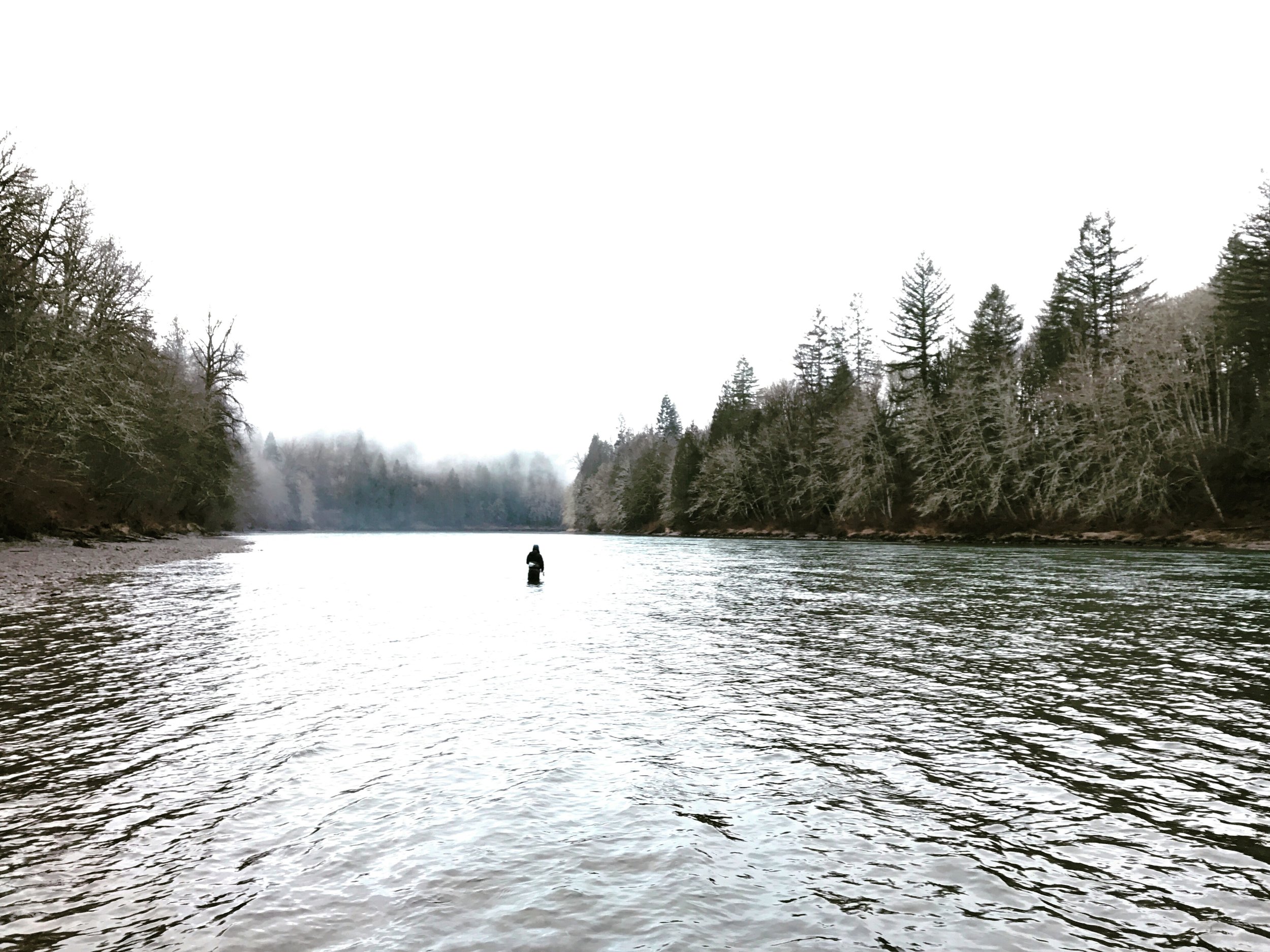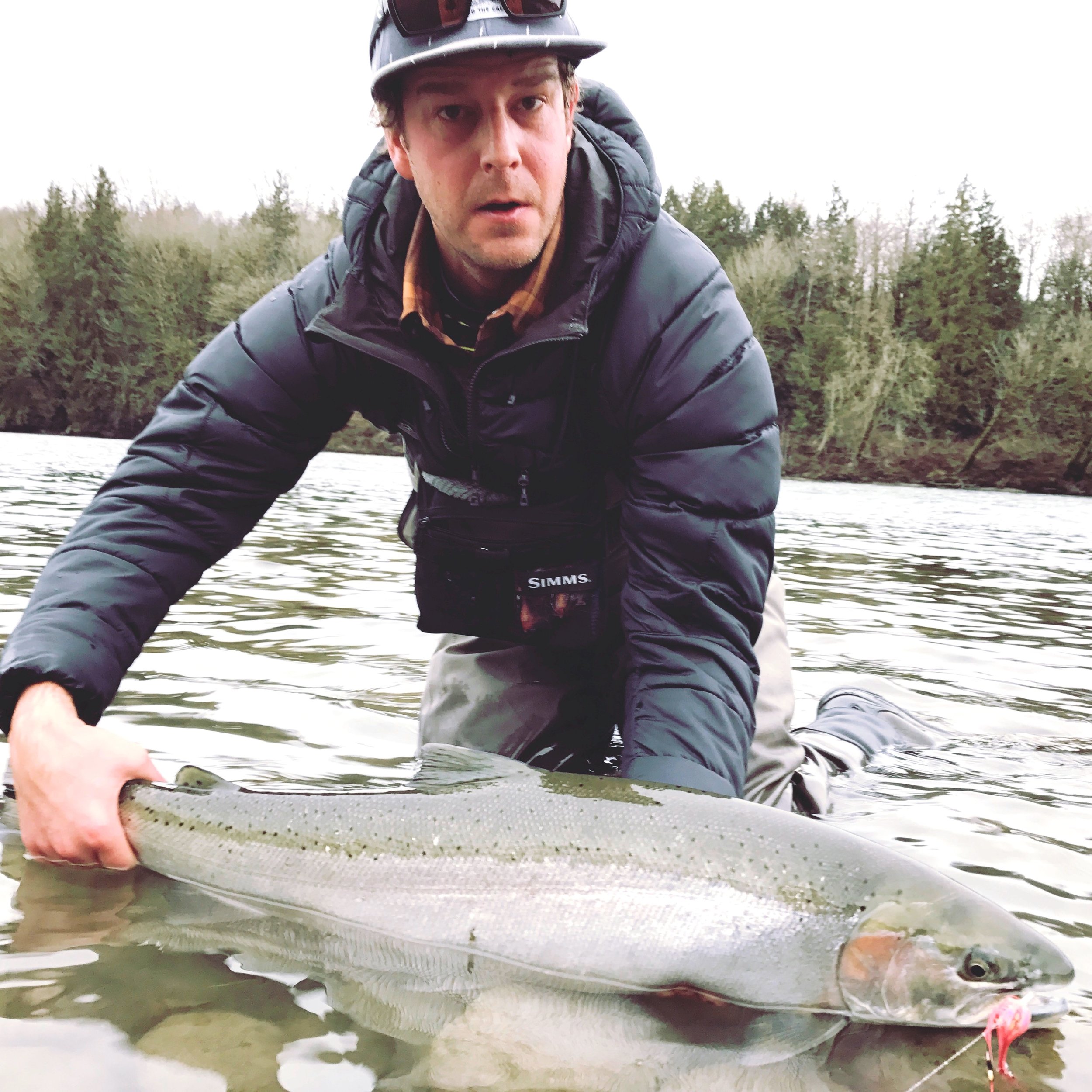Despite a continent lying between them, Atlantic salmon and Northwest steelhead share some commonalities. There’s the basic biology. Both are anadromous fish that migrate from freshwater to their respective oceans, where they journey far and eat hard until nature calls them home. But there are more to the parallels. Both fish are revered by anglers. They’re both considered imperiled across much of their native ranges. But of course, those ranges are far enough removed that these two distinct species rarely cross paths in the wild.
Oh, how things change.
Washington’s Skagit River is one of the most important salmon and steelhead fisheries in the state. It flows more than 150 miles from its headwaters in British Columbia, Canada, to where it meets the Pacific at Skagit Bay, in Puget Sound. It’s a hulking river, and so are its wild steelhead. Over the years its fish have been hammered by hatchery competition, commercial netting, and habitat degradation. In 2007, the feds listed all Puget Sound steelhead—including native Skagit runs—as threatened under the Endangered Species Act (ESA). Shortly thereafter, WDFW dead-bolted the spring fishery. Currently, the river has a highly abbreviated steelhead season that stops on Jan. 31. After that, the Skagit’s returning fish are left to do their thing, unmolested by you and me.
The Skagit’s mandated spring break has helped its fish. Since the closure was implemented, there’s been enough of a steelie rebound that we’ll likely see the reopening of a spring season—in some way, shape or form—either this year or next.
That’s encouraging news. The stranger news comes from something entirely alien to the system. Remember that lunar eclipse back in August? Remember how some crackpots said the temporary blackout would bring the world to its knees? Well, the doomsday prophecies never materialized, unless you were the owner of a certain Puget Sound net-pen operation that housed hundreds of thousands of farmed Atlantic salmon.
The now infamous lunar jailbreak at Cooke Aquaculture’s Cypress Island facility (which had less to do with higher-than-usual tides and more to do with company negligence) sent a stream of these freedom-chasing fish into the Sound. And on a wet January day, a couple weeks back, my fly danced over the edge of a mid-river shelf on the Skagit, where it found purchase in the maw of a very out-of-place fish.
According to a joint report authored by the departments of Natural Resources, Ecology, and Fish and Wildlife, of the 263,000 Atlantic salmon that escaped Cooke’s net pen, about 186,000 remain at large. The number of those fish now waddling up the Skagit, waiting for a solid rock shampooing, is anyone’s guess. Enter Skagit CSI. Back in August, former fish biologist Bill McMillan poked and prodded more than 60 Atlantic salmon carcasses. In an email he wrote that the fish had large amounts of fat buildup from their confined net-pen diet, “even greater than that typically found in summer steelhead when they have been examined—or any other fish ever examined.” The implication is that the interloping ’lantics can live for the better part of a year in freshwater. In other words, they’re not going away anytime soon.
I’ve always dreamt about travelling to Quebec’s Gaspe Peninsula to swing for its high-leaping salmo salar. Maine still has a few notable runs. Iceland is on the list, and so are its spotted fish. Norway has the mega-size salmon of the Guala River. And Scotland and Ireland are great places to immerse oneself in Atlantic salmon lore. But the Skagit River, for chrissakes, is for steelhead. For pink, chum, coho, and chinook salmon. For sea-run cutthroat and bull trout.
Friends landed and dispatched several more of Cooke’s Atlantics leading up to seasonal closure. During those final days of January, it rained hard. The river swelled to 20,000+ cfs. And we heard of one steelhead landed, a megatron fish pushing 18+ pounds. A fish so incalculably savage, I hope, that it just might scare a farmed salmon back into the net from which it came.
[Earlier this month, Wash. Gov. Jay Inslee endorsed a bill to phase out net-pen farming of Atlantic salmon in the state, for good. The bill was passed by the state Senate and now heads to the House. Read more, http://bit.ly/2o8mK35]
-30-







